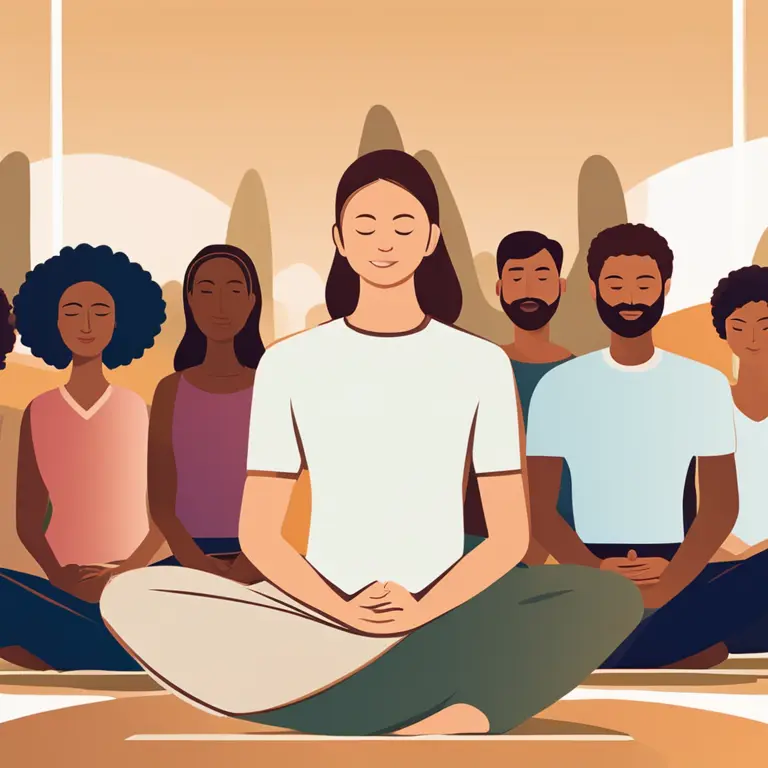
Guides on the Meditation Journey: Who Are They?
Discover the diverse types of meditation teachers, their roles, and how they contribute to a deeper meditation practice in this informative article.
article by Hina Kurosawa
The Traditional Meditation Masters
When we talk about meditation instruction, we often envision the serene, robed figures of traditional meditation masters. These individuals have dedicated their lives to the practice, often within specific spiritual traditions such as Buddhism, Hinduism, or Taoism. They offer rich, deeply rooted teachings based on centuries of philosophy and practice, and are well-versed in guiding students through complex concepts like mindfulness, detachment, and enlightenment. Their wisdom is not merely academic; it is born out of persistent personal experience and spiritual discipline that draws students seeking a profound and authentic meditation journey.

Contemporary Meditation Coaches
In contrast to the traditional icons, contemporary meditation coaches have adapted age-old practices to suit the fast-paced lifestyle of the modern world. These individuals may come from a variety of backgrounds, including psychology, life coaching, or even corporate environments. They blend traditional techniques with practical applications, making meditation accessible to everyone. With a focus on stress reduction, mental clarity, and emotional well-being, these coaches apply the latest research in neuroscience and psychology to help their students apply meditation principles to daily living.

The Role of Tech-Driven Meditation Instructors
In the digital age, AI-powered applications and virtual reality experiences have opened a new frontier for meditation guidance. These tech-driven instructors can customize meditation sessions based on a user's mood, goals, and preferences, providing a highly personalized form of instruction. The integration of biometric feedback allows for an objective look at one's progress and physiological responses during meditation. As technology advances, these virtual guides will likely become even more sophisticated, responding dynamically to the needs of the meditator and shaping the future of personal and remote meditation practice.

Meditation Mentors in Health Care
As meditation's health benefits become more widely recognized, health care professionals have started to serve as meditation mentors. Psychologists, therapists, and even some medical doctors now integrate meditation into their treatment plans. These professionals use meditation to help patients cope with conditions like anxiety, depression, and chronic pain, emphasizing its value as a complementary healing modality. With their medical and scientific knowledge, they represent a bridge between contemplative traditions and evidence-based medicine.

Peer-Led Meditation Circles
Not all meditation teaching is done by acknowledged experts or professionals. Peer-led meditation groups offer a platform for individuals to meditate together, sharing insights and experiences in a communal setting. While the members of these groups may not be formally trained as instructors, the collective wisdom of the group can provide guidance and support. These circles demonstrate the egalitarian nature of meditation—where anyone can lead, learn, and grow, regardless of their background or level of expertise.
Spiritual Leaders and Community Figures
In many cultural contexts, spiritual leaders and community figures play a significant role in teaching meditation. Imams, priests, rabbis, and other religious leaders may incorporate meditative practices into worship services and spiritual guidance, showing how meditation can be a bridge between the secular and the sacred. These figures adapt the teachings to align with their religious doctrines, providing followers with a way to deepen their faith and find inner peace within their spiritual tradition.
Published: 1/14/2024
Modified: 1/15/2024
More predictions
Come back here soon to learn more about yourself and your future


Easing Loneliness with Mindfulness Meditation
Explore how mindfulness meditation can provide solace and connection to alleviate the feelings of loneliness.


Easing Loneliness with Meditation
Discover how mindfulness meditation can provide solace and connection to mitigate feelings of loneliness, enhancing emotional and mental well-being.


Mindfulness Meditation Basics for First Graders
Introducing foundational mindfulness meditation practices to instill calm and focus in first-grade students.